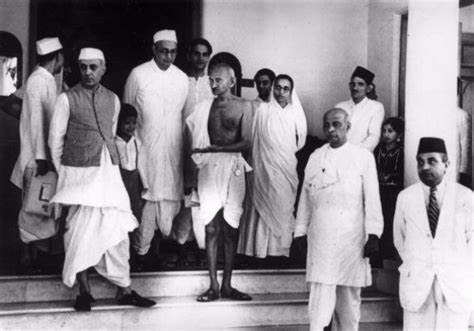
SOCIOLOGY UPSC MAINS SYLLABUS
Introducing Indian Society:
(i) Perspectives on the study of Indian society:
(a) Indology (GS. Ghurye).
(b) Structural functionalism (M N Srinivas).
(c) Marxist sociology ( A R Desai).
(ii) Impact of colonial rule on Indian society :
(a) Social background of Indian nationalism.
(b) Modernization of Indian tradition.
(c) Protests and movements during the colonial period.
(d) Social reforms
- It was in the colonial period that a specifically pan-Indian consciousness took shape.
- Colonial rule unified all of the India for the first time – economically, administratively and through vast communication network, and brought in the forces of modernization and capitalist economic change.
- The economic, political and administrative unification of India under colonial rule was achieved at great expense.
- Colonial exploitation and domination scarred Indian society in many ways and different sections had their own reasons as well to get rid of the foreign rule.
COLONIALIST VIEW
- The colonialist paradigm on Indian history was given a mature form during the nineteenth century.
- Beginning with James Mill’s History of India, the colonialist view could be found in the works of many English historians.
- Mountstuart Elphinstone, Henry Elliot and John Dowson, W.W. Hunter, and Vincent Smith were some important historians who provided overarching interpretations of Indian history.
- The colonialist view rejected the idea of India as a nation.
- The diversity and disunity of India were always emphasized by the colonialist thinkers as justification for the colonial rule which was considered to have united it.
- Right since early days of colonial rule, India was depicted as a land of hostile and warring units.
NATIONALIST VIEW
- Nationalist views on Indian nationalism and national movement were formed in response to the colonialist view.
- While the nationalist writers accepted some of the ideas present in colonialist historiography, they strongly reacted against colonialist denigration of India and its people.
- Besides the spirit of freedom, the nationalist historians emphasise on a variety of factors for the rise of national movement – the generally unfriendly attitude of the colonial rulers, reactionary policies of Viceroy Lytton, Ilbert Bill controversy, the modern education, printing press, modern literature, and finally the partition of Bengal.
- The feeling of racial superiority displayed by English people in India and the official policy of racial discrimination in certain matters humiliated the Indians and created bitterness in their minds.
- The nationalist historians also underlined the economic factors which led to a feeling of disaffection among Indian people. Exploitation of peasantry, high land revenue, forced cultivation of indigo and some other cash crops, drain of wealth, wasteful expenditure of Indian revenue for maintaining a large military force to be used against the Indians or for fighting wars which did not really concern India, and so on.
MARXIST VIEW
- The Marxist paradigm is based on the analysis of the modes of production and classes. The Marxist historians perceive that there was a basic contradiction between imperialism and the Indian society.
- R C Dutt argues, the leadership remained in the hands of the propertied classes who remained most influential in the Congress. These elements prevented any radicalisation of the movement which could become dangerous to their own interests. He is particularly harsh on Gandhi whom he castigates as the ‘the mascot of the bourgeoisie’.
- Dutt’s book was followed by A.R. Desai’s Social Background of Indian Nationalism (1948). It is another thoroughgoing account of the colonial period and the rise of nationalism from a Marxist perspective.
Nationalism passed through various stages which are marked by various phases of national movement. Till the first half of 20th century, political movement was dominated by moderate nationalists who lacked a mass base and hence, nationalist feelings were also limited to middle class and intellectual circles. Mass based movement started with arrival of Gandhian politics. A parallel aggressive nationalism also emerged in form of revolutionary movements in various parts of India.

